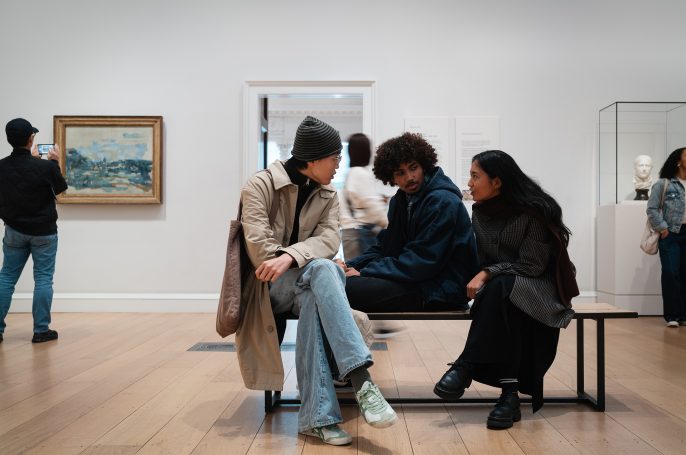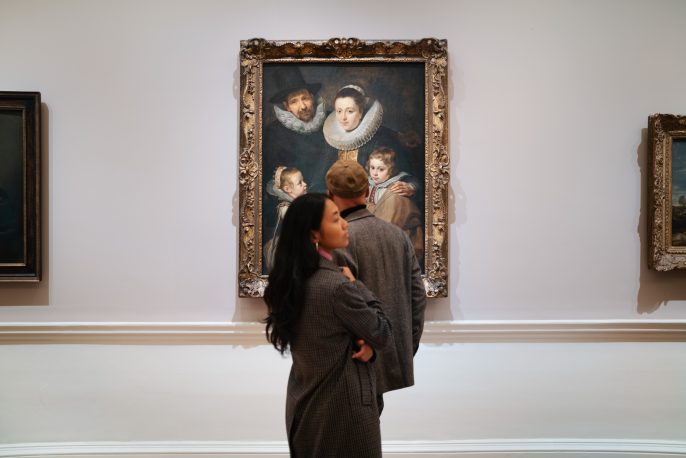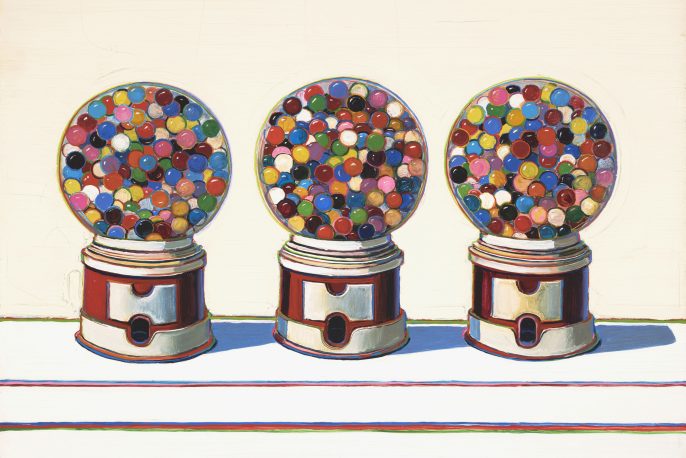Explore how artists experimented with script in North Africa, West Asia and South Asia in the wake of independence movements
This symposium will bring together scholars and researchers to explore an artistic current that transformed Arabic (including Persian and Urdu) letters and script into abstract visual forms across North Africa, West Asia and South Asia in the wake of independence movements and the rise of avant-garde groups and schools.
The discussions will take a comparative transnational approach to explore the ways in which artists engaged with the abstract and expressive possibilities of script either independently or through the formation of “schools” (Khartoum school, Casablanca Art School) and movements (Lettrism, Hurufiyya, Saqqakhana) at critical moments of transformation throughout the 20th century, particularly against the socio-political context of decolonization. This framework will open up questions around the development of transnational aesthetics of decolonization, as well as how these practices gesture at broader networks and spheres of affiliation, beyond national frameworks.
Professor Iftikhar Dadi is Associate Professor and Chair of the Department of History of Art and Director of the South Asia Program at Cornell University. He researches modern and contemporary art from a global and transnational perspective, with emphasis on questions of methodology and intellectual history. His writings have focused on modernism and contemporary practice of Asia, the Middle East and their diasporas. Another research interest examines the film, media, and popular cultures of South Asia, seeking to understand how emergent publics forge new avenues for civic participation. Publications include Modernism and the Art of Muslim South Asia (2010), the edited monograph Anwar Jalal Shemza (2015), the co-edited catalog Lines of Control (2012), and the co-edited reader Unpacking Europe (2001). Dadi serves on the editorial and advisory boards of Archives of Asian Art and Bio-Scope: South Asian Screen Studies, and was member of the editorial board of Art Journal (2007-11). He is an advisor to Asia Art Archive. As an artist, Iftikhar Dadi works collaboratively with Elizabeth Dadi. Their practice investigates memory, borders, and identity in contemporary globalization, the productive capacities of urban informalities in the Global South, and the mass culture of postindustrial societies. They have exhibited widely internationally.
Curator and scholar Dr. Fereshteh Daftari received her Ph.D. in Art History from Columbia University (1988). Her dissertation, The Influence of Persian Art on Gauguin, Matisse and Kandinsky, was published in 1991. During her tenure at the Museum of Modern Art in New York (1988 – 2009), she curated a number of international exhibitions including Without Boundary: Seventeen Ways of Looking (2006). Her curatorial work in the field of Iranian modernism includes Between Word and Image at New York University’s Grey Art Gallery in 2002, and Iran Modern at the Asia Society Museum in New York in 2013. She has also focused on contemporary art. Action Now, the first exhibition of contemporary Iranian performance art, was held in Paris (2012); Safar/Voyage: Contemporary Works by Arab, Iranian, and Turkish Artists at the University of British Columbia’s Museum of Anthropology in Vancouver (2013); and Rebel, Jester, Mystic, Poet: Contemporary Persians at the Aga Khan Museum in Toronto (2017). It then traveled to the Museum of Fine Arts in Houston and in 2021 it will go to the Asia Society Museum in New York. Daftari has published widely and her most recent book is titled Persia Reframed: Iranian Visions of Modern and Contemporary Art (London: I.B. Tauris/Bloomsbury, 2019).
Nabila Abdel Nabi is currently Curator, International Art at Tate Modern, working closely with the Hyundai Tate Research Centre: Transnational. Previously she worked as Associate Curator at The Power Plant, Toronto, and prior to this as Gallery Manager at The Third Line, Dubai. Nabila has worked on solo exhibitions and facilitated new commissions by artists including Abbas Akhavan, Kader Attia, Omar Ba, Yto Barrada, Karla Black, Kapwani Kiwanga, Amalia Pica and Vivian Suter among others. She recently curated the exhibition Hold Everything Dear with Hajra Waheed at The Power Plant, Toronto and was previously Art Editor at literary magazine The Point. Nabila holds degrees from The Courtauld Institute of Art and University of Chicago.
Professor Sussan Babaie teaches at The Courtauld. Her research has been supported by The Getty, The Fulbright and the National Endowment for the Humanities. She began her research (PhD 1994, Institute of Fine Arts, NYU), on the early modern period especially the Persianate-Islamicate world and has expanded its range to include a variety of topics including: on architecture, urbanism and urbanity (Isfahan and its Palaces, 2008, paperback 2018; and Persian Kingship and Architecture, 2015); on transcultural conditions of artistic production (The Mercantile Effect: On Art and Exchange in the Islamicate World, 2017; and ‘The Delhi Loot and the Exotics of Empire’, 2018); and most recently on the transmission of sensory experiences between the visual and the gustatory (‘Cookery and urbanity in early modern Isfahan’, 2018). She comes from a graphic design background (BA 1979, University of Tehran) and is interested in exploring the interdependence between deep history of art and contemporary artistic practices of Iran and the Middle East. This research includes ‘Voices of Authority: Locating the ‘modern’ in ‘Islamic’ Arts’, Getty Research Journal (2011); Shirin Neshat (2013); Honar: The Afkhami Collection of Modern and Contemporary Iranian Art (2017); and in Slavs and Tatars (2017).
This Event is organised by Hyundai Tate Research Centre: Transnational in collaboration with The Courtauld.
Full programme is available to download here






